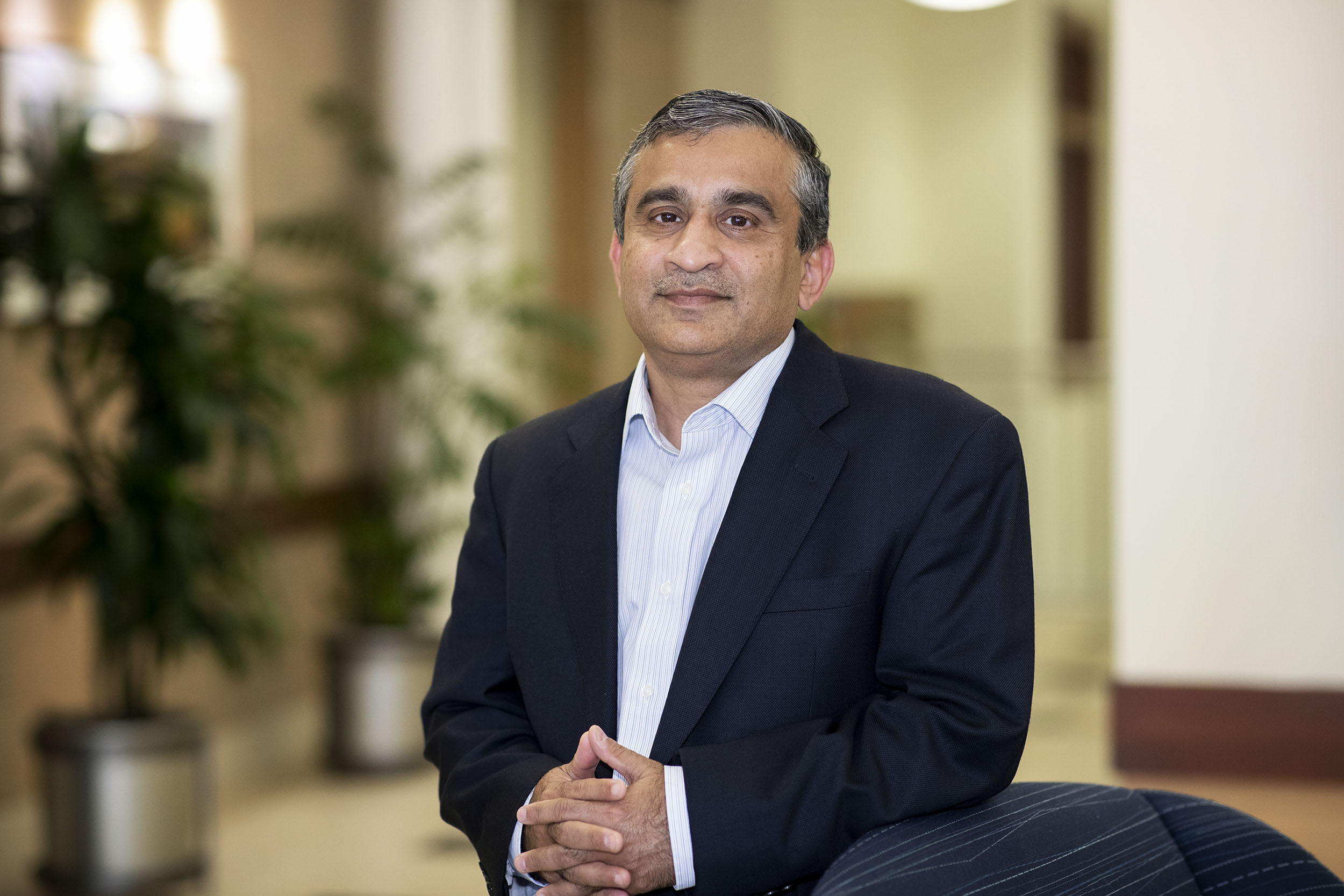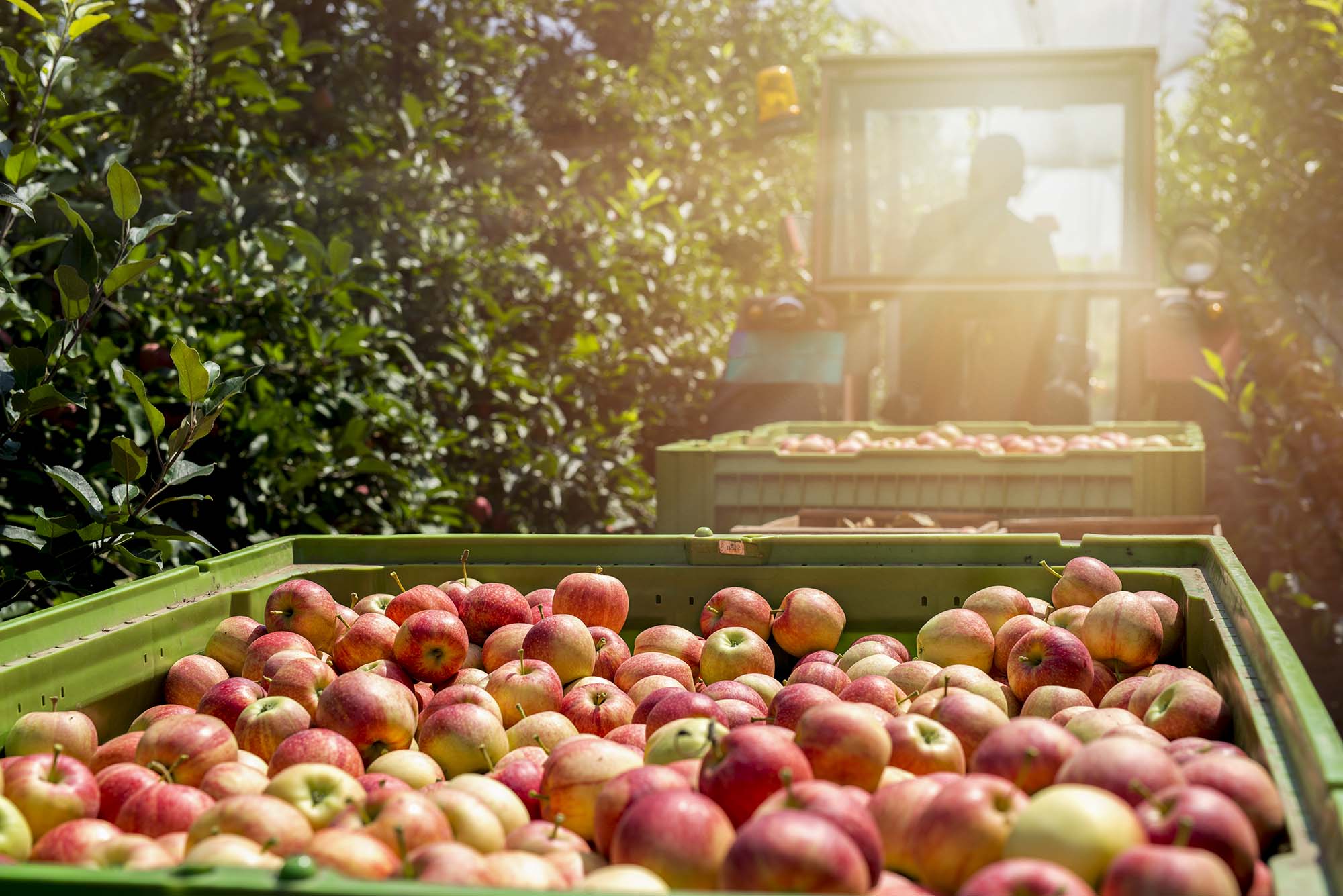Researchers at the University of Virginia’s Biocomplexity Institute are founding partners of a national research institute that will develop artificial intelligence-driven solutions for some of agriculture’s biggest problems: labor, water, weather and climate change.
The $20 million institute, called AgAID, includes UVA, seven other top research universities and two technology companies. It’s one of 11 launched by the National Science Foundation and among two the U.S. Department of Agriculture-National Institute of Food and Agriculture has funded so far in 2021. AgAID Institute is short for USDA-NIFA Institute for Agricultural AI for Transforming Workforce and Decision Support, and is led by Washington State University.
AgAID will be a multi-disciplinary, collaborative institute involving faculty and scientists with expertise on a diverse range of areas in computer science, agriculture and agricultural outreach. In addition to UVA and Washington State, the institute members include Oregon State University; University of California, Merced; Carnegie Mellon University; Heritage University; Wenatchee Valley College; and Kansas State University. Private-sector partners include IBM Research and the start-up innov8.ag.
The UVA team is led by Madhav Marathe, professor in the School of Engineering’s Department of Computer Science and director of the Network Systems Science and Advanced Computing division at the Biocomplexity Institute. Marathe’s research team comprises experts who will contribute by developing rigorous AI techniques using state-of-the-art supercomputers. In addition to Marathe, the team includes researchers Samarth Swarup, Abhijin Adiga, Anil Vullikanti, S.S. Ravi, Mandy Wilson, Joshua Goldstein and Sarit Kraus, a visiting professor and professor of computer science at the Bar-Ilan University in Israel. Vullikanti is also a professor of computer science at UVA Engineering.
“Our team-science approach to tackling complicated problems in the world today will allow us to unravel the complexities of achieving more sustainable agricultural systems,” Marathe said. “The problems the AgAID Institute will address are great examples of biocomplexity, in that they involve people, farms, climate, genomics, pests and other factors that, taken singularly, simply cannot provide the full picture to underlying issues; however, studied together, as one complex system, we will be able to gain valuable insights to solving this puzzle and providing solutions to decision-makers.”
In the western United States, agriculture is a multibillion-dollar industry, accounting for more than 300 crop varieties. Farmers and policymakers in that region struggle with up-and-down profits, major crop loss and poor crop quality owing to several challenges, including increased labor costs, a shortage of skilled workers, weather and production uncertainties, and water scarcity. Better technology could help them navigate these obstacles, leading to more sustainable agriculture. For example, the recent heat wave and extreme drought in the western United States shows the urgency for managing crop varieties and making efficient use of water.

The UVA team is led by computer science professor Madhav Marathe, director of the Network Systems Science and Advanced Computing division at the Biocomplexity Institute. (Photo by Dan Addison, University Communications)
“While AI is expected to be a key driver in addressing these challenges, AI capabilities must be significantly expanded and will especially need to account for human input and human behavior – calling for a strong AI-Ag coalition that addresses challenges while creating new opportunities to achieve sustained innovation and more resilient food supply systems,” Marathe said.
The team will combine techniques in network science and agent-based simulations to develop innovative solutions for water and farm management problems. A key focus is to develop AI-based methods that are explainable and take into account emerging issues related to fairness and ethics.
“The UVA Biocomplexity Institute has strong experience with interdisciplinary research programs and a proven track record of addressing complex challenges using innovative AI solutions,” said Melur K. Ramasubramanian, UVA’s vice president for research. “Over the past 18 months, the Biocomplexity Institute team has modeled scenarios to help governments and the global research community understand and mitigate the spread of COVID-19. Their expertise in simulating scenarios of complex situations and producing high-tech tools will be extremely beneficial in achieving the goals of the new AgAID Institute.”
While traditional AI development involves scientists making tools and delivering them to end-users, the AgAID Institute will involve the people who will use the AI solutions – from farmers and workers to policymakers – in their development, said Ananth Kalyanaraman, a Washington State computer science professor and the lead principal investigator for the new institute.
“People are very much part of the agricultural ecosystem. It’s not just plants growing,” Kalyanaraman said. “Humans manipulate crops daily and make complex decisions, such as how to allocate water or mitigate the effects of an incoming storm. We aim to partner human knowledge with AI tools in a way that amplifies the end outcomes where the whole is greater than the sum of its parts.”
The AgAID Institute will take an “adopt-adapt-amplify” approach, Kalyanaraman said. This means first the institute will design AI solutions in partnership with the people who use the tools, so they are practical and more likely to be adopted.
The researchers will also work to make solutions that can adapt to changing environments and that amplify productivity by combining human skills and machine capabilities to be more effective than either would be alone. For instance, pruning trees is a highly skilled task, but a beginner-level worker could benefit from an AI tool that provides expert guidance to help decide which is the best branch to prune. The task is done better, and the worker starts to learn from the feedback. With a shortage of skilled labor, AI can benefit both the orchard and the worker, Kalyanaraman said.
“It’s a partnership. AI can help us basically bridge the divide between high-skilled and low-skilled workers,” he said.
Educating the workforce at all levels is central to the AgAID Institute – not just to encourage AI adoption, but as a matter of equity, according to institute leaders, who plan multiple education programs from K-12 through higher education and worker training. The goal is to raise AI skill levels and open new career paths, which can improve pay and quality of life for agricultural workers. It can also attract more people to agriculture and computing professions.
“Students and post-doctoral researchers are an integral component of the program,” Marathe said. “It’s critical that we prepare the next-generation workforce for careers at the intersection of agriculture and AI technology. UVA is uniquely positioned to feed this sector, given its excellent computer science department and program. Our goal is to provide experiential learning opportunities for these students and encourage them to use their skills to help solve some of the toughest problems in our society, sustainable agriculture being just one of them.”
The AgAID Institute will undertake several test cases involving specialty crops, many of which grow in the western United States, such as apples, cherries, mint and almonds. These crops encompass several major challenges; they require intensive labor and irrigation, and they also are vulnerable to weather events and climate change. Specialty crops account for 87% of the U.S. agricultural workforce, and about 40% of these crops are perennial, requiring long-term management and resource planning.
The difficult challenges posed by these cases would mean AgAID Institute’s solutions would be rigorously tested before being transferred to other regions in the country, Kalyanaraman said.
“We know that AI has a serious potential to make groundbreaking discoveries and transform our decision-making capabilities in a data-informed way, but the technology needs to be developed in a very careful manner,” he said.
Learn more about the UVA Biocomplexity Institute, NSF AI Institutes and artificial intelligence research by visiting nsf.gov.
Media Contact
Article Information
July 29, 2021
/content/uva-biocomplexity-institute-developing-artificial-intelligence-agriculture

